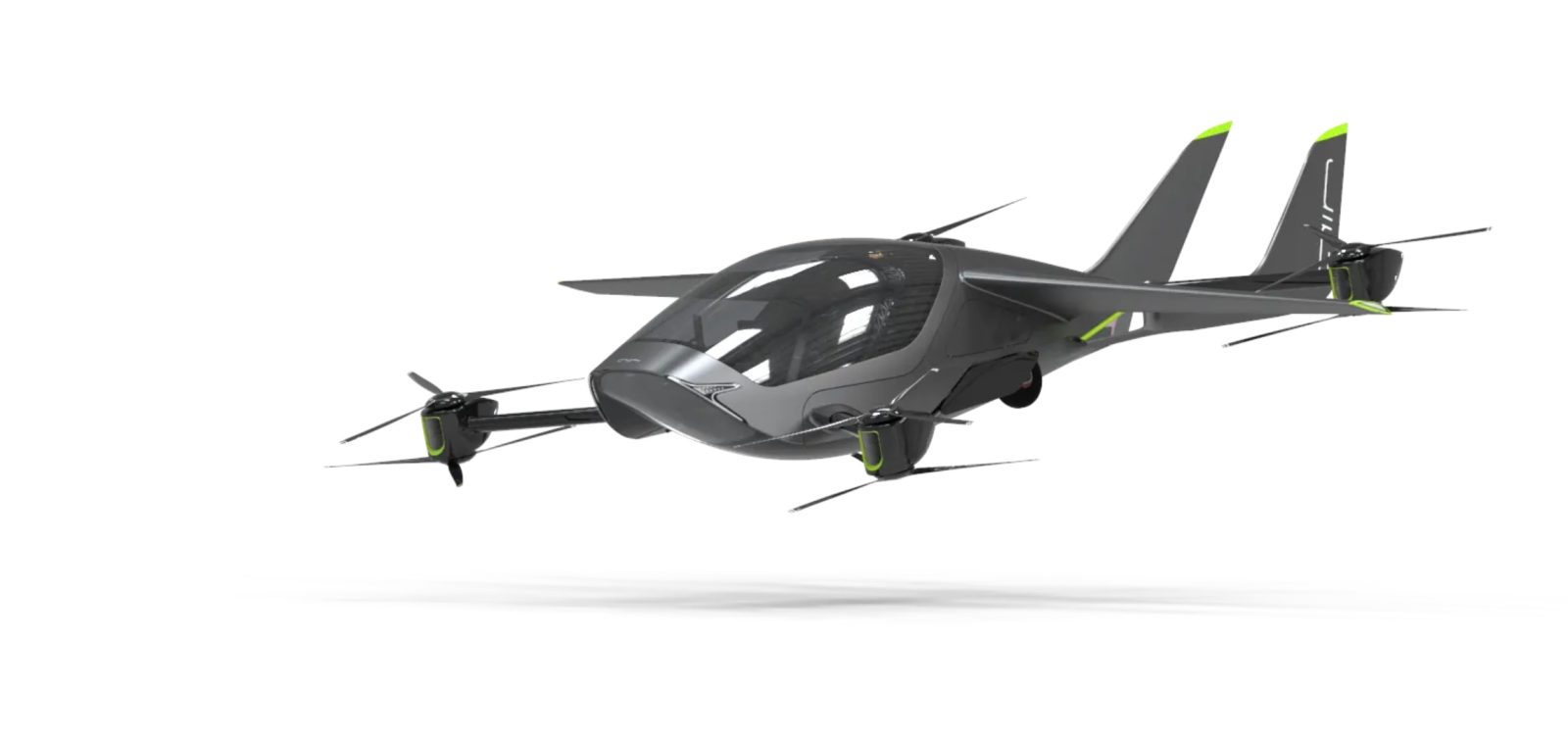
In the wake of last week’s unveiling of a Swedish single-seat personal electric vertical takeoff and landing (eVTOL) vehicle, Israeli company Air One now introduces a two-seat rival to allow individual consumers to fly themselves around.
Flying car startup Air has rolled out its dual-person eVTOL for pre-orders, ahead of expected deliveries in 2024. Now in the demonstration prototype phase, the Air One is described as having a maximum 110-mile range – or one hour aloft – on a single charge, reaching top speeds of 255 mph. Rejuicing a flat battery to full capacity is said to take an hour, with a 20% to 80% jolt requiring 30 minutes.
Though Air has not communicated price for its now on-order aircraft, press reports quote company officials saying they hope to keep it in the same range as high-end cars.
Introduction of Air One comes less than a week after Sweden’s eVTOL vehicle maker Jetson presented its one-seat personal aircraft, not illogically dubbed ONE. That model is billed as reaching top speeds of 63 mph, with most other specs given applying only to dimensions. Like the Air One, the Jetson ONE can be partially broken down to adapt to limited parking or storage spaces.
Thought Jetson’s eVTOL seems a bit farther down the road to manufacturing and delivery, it’s similar to Air One in its trend-bucking target market. Most flying car producers are aiming for somewhat larger and longer-range vehicles for air taxi, delivery, or similar use. Jetson and Air are focusing on individual consumer operation, and are well beyond the proof of concept stage most competitors are still in.
Air continues conducting uncrewed test flights of prototypes, and working toward Federal Aviation Administration certification it hopes to obtain by 2023. Its priority market will be the US, where it expects to sell an average of 15,000 Air eVTOL vehicles per year. Pre-orders are described as being in triple digits.
People concerned at the thought of their neighbors or friends jumping out of seriously dinged-up cars and taking off in a flying machine don’t have to fret, says Air cofounder and CEO Rani Plaut. Air One’s navigation controls and onboard system operates using a “fly by intent” software that translates what pilots have tried to do into the safest actions that should be taken. Think of it as Auto-Tune for the Cher pilots of the world.
That kind of human-helping tech is a given in next-generation air mobility craft, says Plaut. And because it is, he believes anyone insisting that people taking to the skies must be trained, certified pilots are going to have to be educated about what’s actually on the way.
“The future of mobility is in the sky, but to get there we need to build consumer confidence in eVTOLs as a legitimate mode of everyday transport and develop vehicles on a mass-scale to bring that vision to life,” says Plaut. “Air One is our hat in the ring, simultaneously showing consumers the first in a line of diversified, playful models for personal flight and demonstrating cutting-edge technology that will enable high-volume production and scalability.”
FTC: We use income earning auto affiliate links. More.




Comments